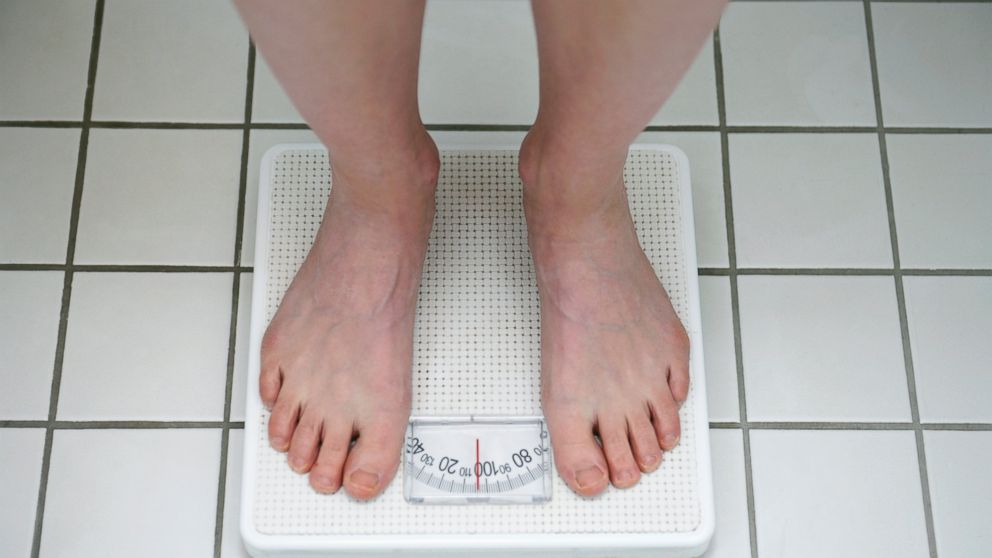8 Weight Loss Myths to Lose Today
These misconceptions may be sabotaging your dieting efforts.

— -- intro: When it comes to obesity, we have more to lose than just those extra pounds. We also need to shed our misconceptions.
“If we continue to think about obesity prevention and treatment the way we always have, then we’ll continue putting our time and resources into the wrong things,” said Krista Casazza, assistant professor at the University of Alabama and author of a new report on weight loss myths published in the journal Critical Reviews in Food Science and Nutrition.
Casazza and her colleagues highlighted eight misconceptions that may be preventing the more than 1.5 billion obese people on the planet from losing weight.
Here’s a quick rundown of the myths and why they don’t add up.
quicklist: 1category: Weight Loss Mythstitle: Slow Weight Loss is Betterurl:text: Most diet experts recommend losing no more than two pounds a week. But Casazza’s research round-up found that people who lose weight faster are more likely to keep it off and continue losing.
Casazza said a quick fix “fad” diet can jump start weight loss by boosting confidence and motivation. As long as the plan isn’t unhealthy and the dieter lifts weights to maintain muscle mass and metabolism, dropping a dress size in a week might not be such a bad thing, she said.
quicklist: 2category: Weight Loss Mythstitle: You Need a Reasonable Weight Loss Goalurl:text: Shooting for crazy, out-of-reach weight loss goals often gets better results than setting modest, easily attainable goals, Casazza said.
“Striving for something unreasonable like losing hundreds of pounds often drives you to engage in ambitious, out-of-the-box thinking,” she explained.
quicklist: 3category: Weight Loss Mythstitle: You Must ‘Be Ready’ to Lose Weighturl:text: You don’t need to completely focus on weight loss in order to lighten up, even though that’s a popular notion among dieters and weight loss experts alike, Casazza said, adding that many weight loss centers even assess new clients with a diet readiness questionnaire.
The concept of total engagement to achieve success is based on models that work in drug addiction, Casazza explained. In studies, willingness to change did a poor job of predicting who lost weight and who didn’t.
quicklist: 4category: 9 Obesity Mythstitle: P.E. Curbs Childhood Obesityurl:text: School phys ed classes alone don’t get kids to a healthy weight because they aren’t active enough, Casazza said.
“Studies show that by the time kids get dressed and the instructor gets organized, takes roll call and gives instructions there’s barely any time left over for activity,” she said. “The kids actually have to do some work – not just show up.”
Casazza said exercise may be one key to fighting childhood obesity, but 30-minute PE classes by themselves won’t do the trick.
quicklist: 5category: Weight Loss Mythstitle: Breastfeeding Protects Against Obesityurl:text: Breastfeeding is healthy for a lot of reasons. Unfortunately, obesity prevention doesn’t seem to be one of them, Casazza said.
Casazza said her team has conducted a number of studies looking for the positive influence of breast feeding on weight control, and it’s just not there. One problem with the concept, she said, is that it’s difficult to tease out the effect of breast feeding and other factors like a mother’s weight and income. It’s also possible that the breast milk of obese women has a different composition than the breast milk of thin women which might negate some of its weight control benefits.
quicklist: 6category: Weight Loss Mythstitle: Never Weigh Yourselfurl:text: Researchers have long speculated that following daily fluctuations in weight would be a huge bummer for dieters. This turns out not to be the case. In fact, Casazza’s review found that people who do a daily weigh-in increase their chances of losing weight compared to those who stepped on the scale just once a week.
quicklist: 7category: Weight Loss Mythstitle: Genes Aren’t Your Problemurl:text: Genes do play a role in what you weigh, just not the way you think, Casazza said.
Rather than harboring mutations, your genes may be influenced by epigenetics, a process that affects the way genes express themselves in the environment they face. It’s also possible to pass these epigenetic alterations down through the generations. For example, your father’s weight, what your mother ate and how much your grandparents exercised could all change the way your body’s genetics respond to diet and exercise, Casazza explained.
quicklist: 8category: Weight Loss Mythstitle: Food Deserts Make You Faturl:text: Scientists refer to neighborhoods short on access to fresh, healthy foods as food deserts. These areas have long been associated with poor health and high BMIs. But Casazza says the research shows otherwise.
In the studies Casazza and her team reviewed, living in a food desert did not correlate with a higher incidence of obesity compared to places where fresh fruits and vegetables were readily available. Further, giving residents better access to fruits and veggies did not guarantee they would up their intake of produce.




